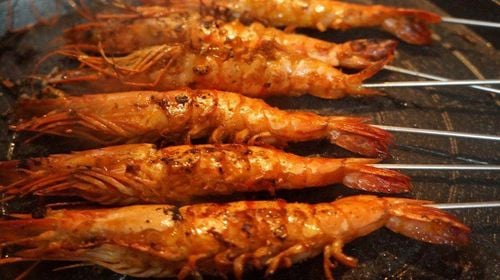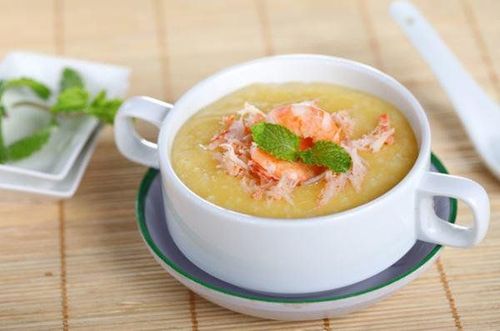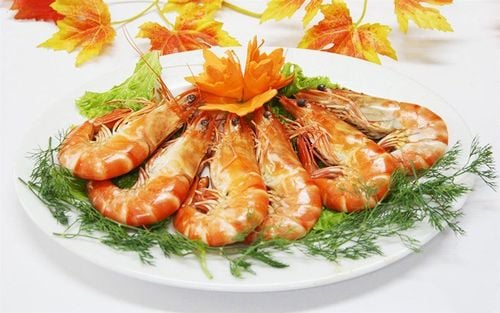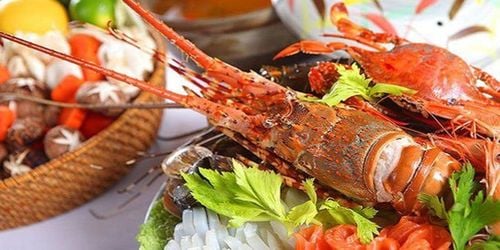This is an automatically translated article.
Shrimp is one of the seafood good for human health, the nutritional value of shrimp is quite abundant, containing many vitamins and minerals. It can be said that shrimp is a perfect food that needs to be added to daily nutrition. However, “should children eat shrimp or not?” This is a question asked by many parents.1. Is eating shrimp good for babies?
Shrimp is rich in calcium and contains higher protein than poultry. Therefore, many parents wonder "should children eat shrimp?" or "Is eating shrimp good for babies?". In fact, shrimp is not only easy to absorb, but also contains DHA to enhance the intellectual development and eyesight of the baby. The nutritional values of shrimp include:Contains many vitamins: Including vitamins A and D, these are important micronutrients for the development of skeletal muscle, enhancing digestive system support and sugar function intestine. High in selenium, which helps reduce inflammation and promote heart health. In addition, studies show that the mineral selenium helps prevent certain types of cancer in young children. Feed your baby shrimp to support the body's good development. However, it should be noted about the quantity as well as the health, ... suitable according to the baby's age to ensure safety.
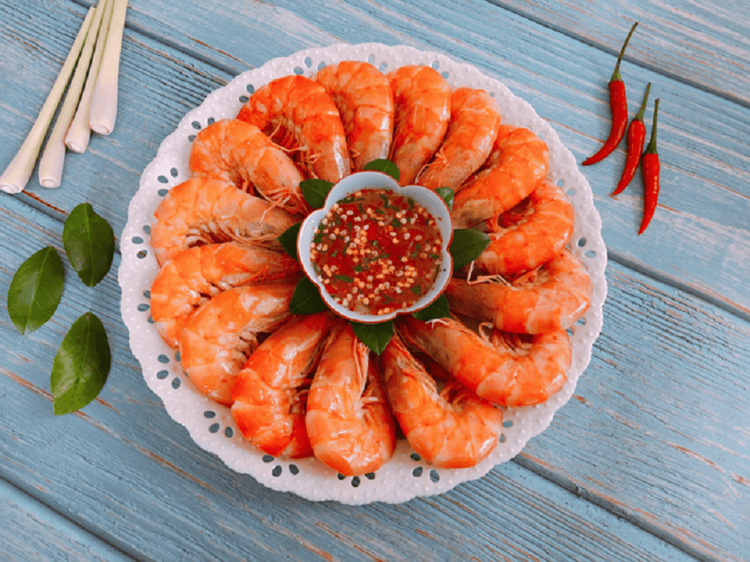
Tôm rất giàu canxi, chứa protein cao hơn so với các loại thịt gia cầm
2. How many months can babies eat shrimp?
From 6 months of age, babies can start to eat some other foods besides milk such as flour, porridge, vegetables, fruits, ... Seafood in general and shrimp in particular often contain a lot of protein, so it often cause food allergies in children. So, to the question that a baby can eat shrimp at a few months, the answer is that it is best to feed him shrimp from the 7th month onwards.When feeding your baby with shrimp, it is important to pay attention to feeding it little by little so that the baby gradually adapts. Depending on the age of the shrimp, the amount of shrimp per meal will be different. Specifically as follows:
Children 7 - 12 months: For children in this age group, each meal should give 20-30g of shelled shrimp. Mom can cook shrimp with flour and porridge, can eat one meal a day and 3-4 meals a week. Children 1-3 years old: For children from 1-3 years old, every day should eat a meal of shrimp cooked with porridge or eat noodles, vermicelli, soup... with about 30-40g of shrimp. Children 4 years old and older: When children are 4 years old or older, they should eat 1-2 shrimp meals/day, each meal is 50-60g shrimp. For children, the diet of seafood in general and shrimp in particular is often built on the basis of the need to absorb nutrients at different times during the baby's development.
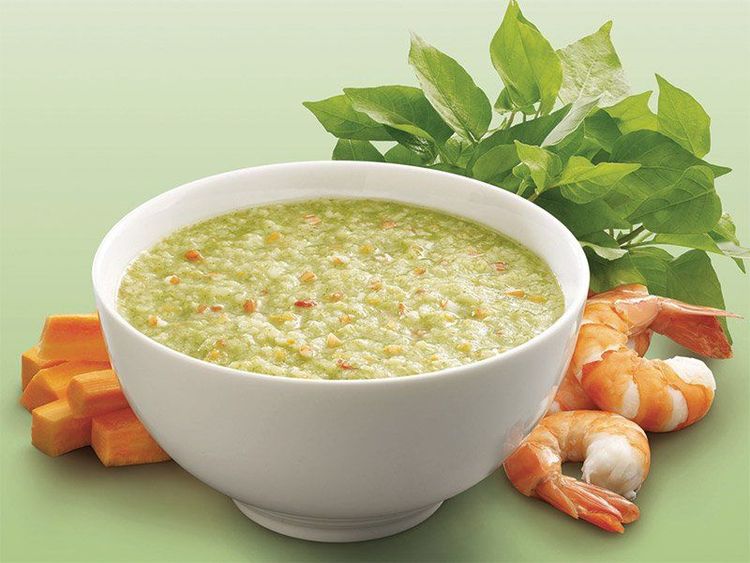
Nên cho bé ăn tôm từ tháng thứ 7 trở đi là tốt nhất
3. How to properly and properly prepare shrimp for babies to eat
When feeding shrimp to children, parents need to process it properly to ensure food safety and hygiene, to avoid the risk of food poisoning for babies. How to cook shrimp:Properly prepare shrimp:
No matter how shrimp are processed, they need to be soaked in cold water or salt water first to wash them. Then pull the shrimp legs and use your thumb to separate the shrimp shells from the meat. Remove the head and tail, and remove the black thread running along the back of the shrimp by splitting the shrimp's back with a small knife to reveal the black thread, then pull it out. After the preparation is complete, wash the shrimp and let it dry.
Properly cook shrimp for your baby:
Parents can cook shrimp in a variety of ways, the best ways are often recommended by boiling, steaming, baking or sautéing for your baby. For babies who can't chew yet, they should puree the shrimp and cook it with flour or porridge.
When processing shrimp, make sure to cook shrimp completely. The sign that shrimp are fully cooked is when they curl up close to the letter "C", from gray to pink-orange.
Store shrimp properly:
If parents cannot buy live shrimp, they can use frozen shrimp sold at supermarkets. However, when buying frozen shrimp at the supermarket, it should be noted that the shrimp must be processed as soon as possible.
Because according to food experts, it is recommended not to freeze shrimp again after it has been previously defrosted. Because the softness and flavor of frozen shrimp will be more or less affected than that of raw shrimp.
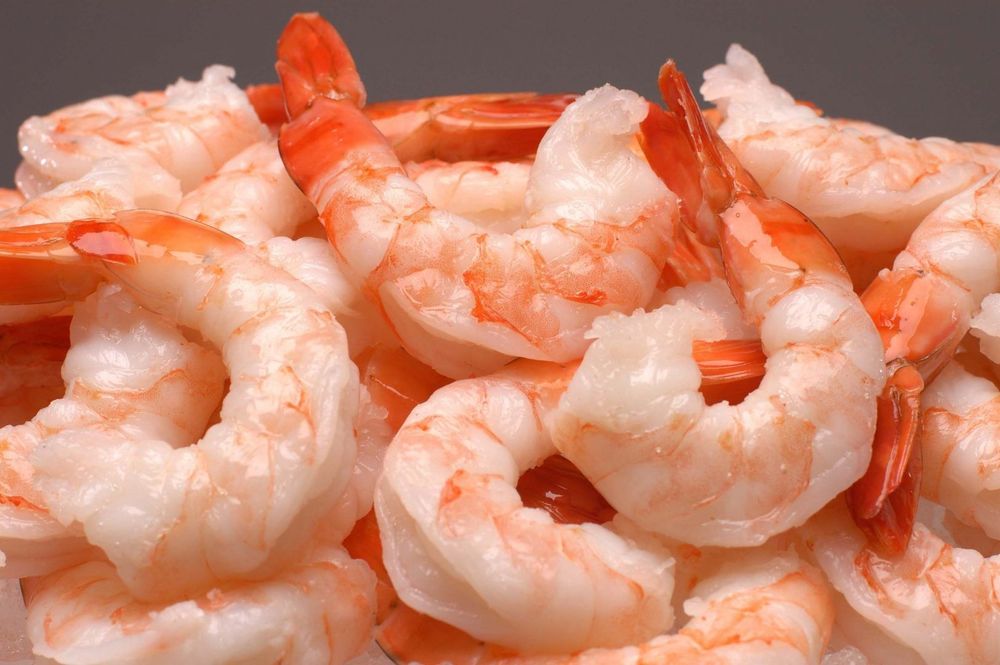
Các chuyên gia thực phẩm khuyến cáo không nên trữ đông tôm thêm lần nữa sau khi đã rã đông trước đó
4. Note when feeding your baby shrimp
Shrimp is very good for the comprehensive development of the baby, however, when feeding shrimp, parents should note that children should not eat seafood at the same time as fruit, because after eating shrimp, eat fruit. It will affect the absorption of protein and calcium of the baby's body. At the same time, the amount of tannin in the fruit, when combined with protein, will form insoluble calcium, thereby stimulating the digestive tract, causing symptoms such as abdominal pain, nausea. In addition, parents should note the following:If there is a history of seafood allergy in the family, the mother should let the child try some seafood first, in case the child is not allergic. Then, parents should gradually increase the amount of seafood in their children's meals. Grind shrimp to cook powder or porridge for babies to eat during the baby's weaning period. For children older than 3 years, they should eat boiled or cooked seafood dishes with noodles, vermicelli or porridge. The most important thing is that when feeding your baby seafood, it is advisable to choose fresh, not dead seafood because it is easy to cause food poisoning for the baby. When processing, it is necessary to ensure hygiene and complete cooking. Many people often think that the shrimp head contains a lot of calcium, but in fact, the shrimp head is a place that contains a lot of waste, which is not good for the health of the baby. Besides, shrimp heads also have a lot of fiber that can easily cause babies to choke. Therefore, when feeding shrimp to children, parents should remove the shrimp head and then process it for the baby to eat. When feeding children shrimp, absolutely do not let them try other strange seafood. At the same time, children should not eat a lot of fried seafood because when frying, the fat will saturate the amount of unsaturated fat, thereby reducing the nutrient content as well as producing lipid peroxides that are harmful to health. baby's health. Overall, shrimp is a healthy food to include in your baby's daily diet. The nutritional value in shrimp brings many health benefits to the baby as it contains a source of vitamins, minerals and protein. Although shrimp contains high cholesterol, it does not negatively affect children's health, so eating shrimp does not negatively affect children's health if eaten in moderation.
Please dial HOTLINE for more information or register for an appointment HERE. Download MyVinmec app to make appointments faster and to manage your bookings easily.




